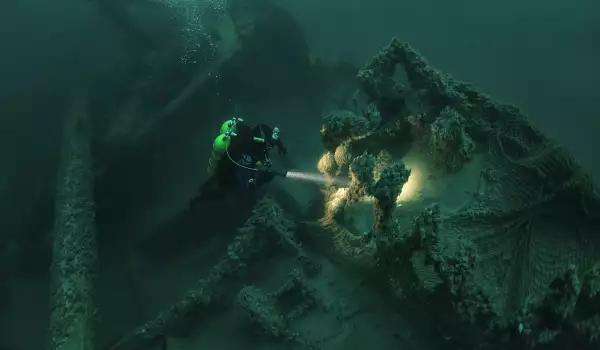According to scientific tests, the now legendary ship Titanic will completely disappear within the next 20 years. The reason is little-known to science bacteria that live on the sea bottom and feed on rust.
Scientists have calculated that it will take these unicellular organisms 2 more decades to eat the sea vessel that sunk more than 100 years ago. This conclusion is based on the calculations of the estimated weight of the ship - 50 000 tons, and the rate at which it is being eaten.
This is by no means the most interesting fact related to bacteria. They are known to be the oldest form of life on Earth. Unicellular organisms are all around us and while some make us sick, others do the exact opposite - they can help us get better.
A relatively little-known fact is that even though they are microscopic, the total weight of all the bacteria in the human body is about 4.5 lb (2 kg). Other research even states that they represent on average about 1/10th of the body's weight.
This is because bacterial cells are much smaller than human cells. They also make up to about half of the waste substances in the body.
Actinomycetes have an exceptionally negative effect on us in our daily lives. They are a type of filamentous bacteria. They live in soil that's moist and warm.

When the soil dries, they release spores. After rainfall, these spores rise up into the air, while at the same time releasing a highly unpleasant odor. Mixed with city dust and polluted air, these bacteria can temporarily shut down an entire city.
Another unpleasant fact related to bacteria is that for every 2 weeks that you don't wash your jeans, about 1000 bacteria accumulate in the front, between 1500 and 2500 in the back and about 10 000 accumulate in the crotch area!
No less shocking is that the human belly button contains approximately 1500 bacteria. American scientists have discovered that an entire ecosystem thrives in the belly button, comparable in diversity only with tropical rainforests.
Bacteria are also responsible for the smell of our sweat. In fact, sweat itself does not smell. The odor comes from the mixture of sweat with the excrement of the bacteria that live on the human skin.
Despite these facts, we shouldn't worry heedlessly about bacteria. Man has learned to coexist with them a long time ago, plus they are the root cause for the overall development of life on Earth.









